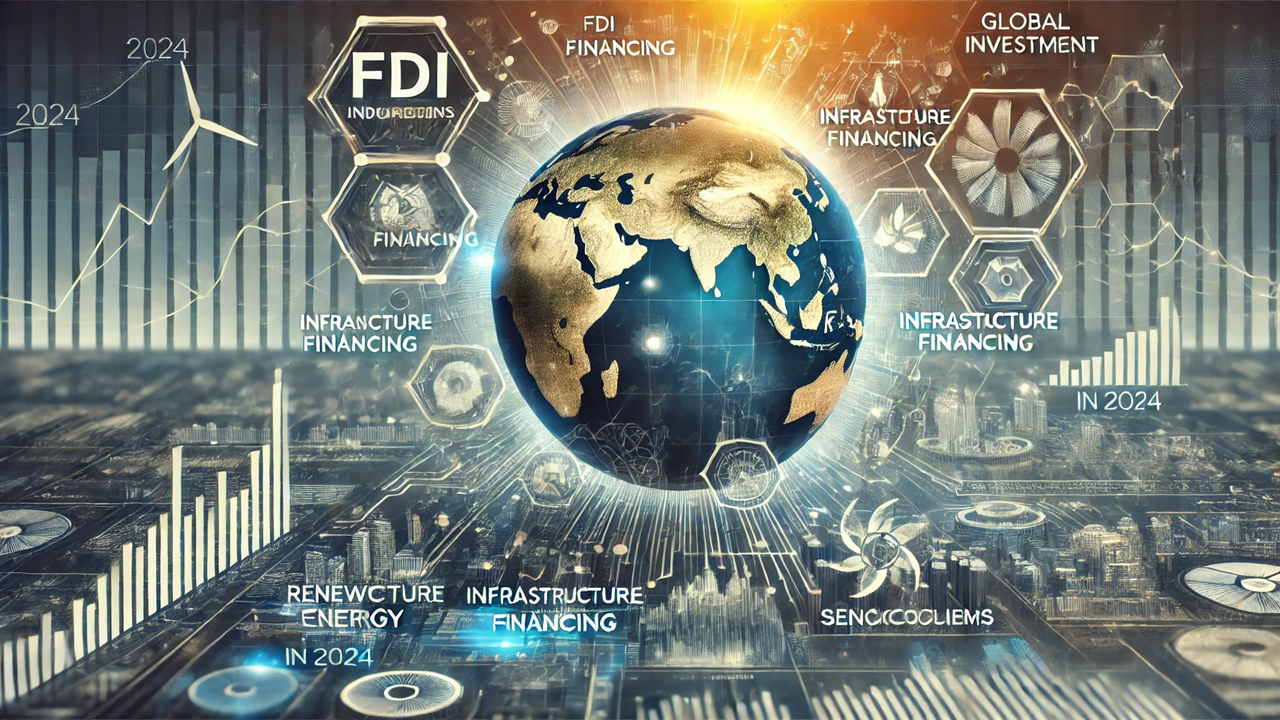Global FDI Wavers Amid Economic Pressures: UNCTAD Report Reveals 2024 Trends
The latest UNCTAD report on global FDI trends shows a mixed investment landscape for 2024, with slight growth in global FDI overshadowed by significant project slowdowns. Major insights reveal regional contrasts, declining greenfield projects, and the impact of global pressures on infrastructure finance.

Global Investment Struggles Under Economic Pressures: UNCTAD’s 2024 FDI Report
The "Global Investment Trends Monitor, No. 47," released by UNCTAD in October 2024, sheds light on the mixed state of foreign direct investment (FDI) worldwide, with a fragile 1% growth in global FDI excluding conduit flows. This slight uptick contrasts starkly with a significant decline in new project announcements, especially in the industrial and infrastructure sectors, where investments fell by 10% and 33%, respectively. The report emphasizes how higher financing costs, lingering inflation, and geopolitical uncertainties have affected investment flows, especially in cross-border mergers and acquisitions (M&As) and international project finance.
Marginal Global Gains and Regional Disparities
While FDI rose by 25% when including European conduit economies, the underlying data tells a story of economic caution. Developed economies showed varied performance, with inflows to Europe down by 4% excluding conduit flows. Germany and France, however, saw notable growth, while the United States led North American trends with a 9% increase in FDI.
Conversely, in developing economies, FDI flows were bolstered by a major project in Egypt valued at $35 billion, helping to offset declines in other regions. Nevertheless, the number of greenfield project announcements across developing regions dipped by 11%, highlighting a cautious approach from multinational enterprises amid economic fragmentation and supply chain challenges.
Sectoral Shifts: Greenfield Investments and Infrastructure Financing
UNCTAD’s report highlights the decline in greenfield investments, a crucial measure of new overseas projects. Project announcements fell by 11% globally, reflecting broader economic caution. However, the semiconductor sector emerged as an outlier, with investments surging in response to supply chain diversification efforts, especially within the United States. This trend reflects strategic moves in response to both industrial policies and concerns about supply chain bottlenecks in critical technology sectors.
International project finance—a lifeline for major infrastructure initiatives—continued its decline in 2024, down by 32% in project volume and 29% in total value. The renewable energy sector, a historically strong driver for international project finance, saw a significant drop in developed economies as the costs of financing projects rose. Despite its contribution to global energy security, renewable energy finance projects in 2024 were impacted by economic headwinds, further slowing greenfield announcements and cross-border financing deals.
Key Industry Insights: Semiconductors and Renewable Energy Lead Diverging Trends
The semiconductor industry stands out in UNCTAD’s report as a beacon of growth, particularly in developed economies where strategic investment has quadrupled in response to industrial policies. Several semiconductor projects, notably in the United States, attracted billions in investments, reflecting a focused effort to bolster domestic production capacity and reduce dependency on foreign sources.
In contrast, sectors such as automotive and renewable energy faced challenging conditions in developing economies. Automotive investments, particularly strong in 2023, fell sharply by 40% across developing regions. Similarly, renewable energy projects, despite their high demand, saw a reduced number of international project finance deals as industry players contended with financing difficulties and economic pressures across both developed and developing economies.
A Complex Outlook for Global Investment
UNCTAD’s report concludes with a cautiously optimistic outlook for the remainder of 2024, noting that while some positive growth may occur, FDI will likely remain constrained by geopolitical tensions, regional conflicts, and economic fragmentation. However, easing financial conditions in certain markets could offer some respite, potentially stabilizing cross-border investments and encouraging multinational enterprises to reinvest.
The "Global Investment Trends Monitor, No. 47" provides valuable insights into an FDI landscape reshaped by global uncertainties and shifting economic priorities. As countries continue to navigate an era marked by rising costs and strategic shifts in key industries, UNCTAD’s findings offer a detailed glimpse into how multinational enterprises are adapting to—and at times, retreating from—a complex global investment environment.
- FIRST PUBLISHED IN:
- Devdiscourse










